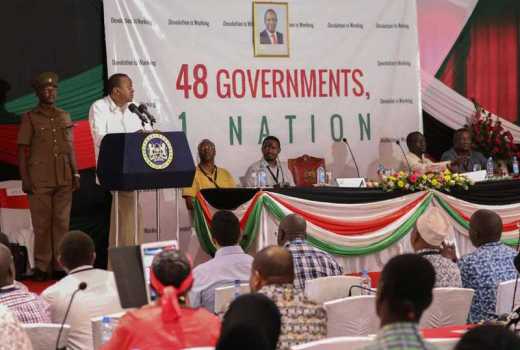×
The Standard e-Paper
Stay Informed, Even Offline

Forty governors are on the spot for flouting constitutional requirements in their choice of new cabinet members.
A number of legal experts are warning that the affected county cabinets should be reconstituted and all the appointees vetted by the Ethics and Anti-Corruption Commission (EACC).